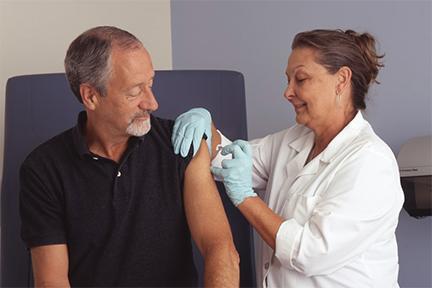
In the dynamic world of healthcare, nurses stand as pivotal figures in shaping public health, particularly in the realm of senior care. Their role transcends beyond mere assistance in clinical procedures; they are educators, advocates, and often the primary source of comfort for older people. With the aging population growing rapidly, the focus on senior health has never been more critical. Nurses are at the heart of this focus, utilizing their skills and knowledge to ensure better health outcomes and disease prevention for aging individuals.
Nurses at the Forefront of Public Health
At the core of public health, especially in senior care, are nurses who dedicate their lives to ensuring the well-being of older people. Their role is multifaceted, involving direct patient care, health education, and a deep understanding of the unique needs of the senior population. As primary caregivers for seniors, nurses are often the first to detect health issues and are instrumental in providing timely care.
To further enhance their role, many nurses turn to advanced education. Programs such as the Doctor of Public Health (DrPH) and PhD in Public Health offer nurses an avenue to deepen their understanding of public health issues. These programs equip them with the skills to develop and implement strategies specifically tailored for senior healthcare. In this context, nurses often debate the merits of pursuing a DrPH vs PhD in public health to enhance their expertise and impact in this specialized field. The DrPH is typically more practice-oriented, focusing on applying public health principles to real-world problems, which is crucial in handling the complex health issues of older people.
On the other hand, a PhD is more research-focused, ideal for nurses aiming to delve into the academic and investigative aspects of public health.
Proactive Disease Prevention and Health Promotion
Nurses play a crucial role in preventing diseases among older individuals. They’re often the ones administering vaccines, conducting regular health screenings, and providing vital information on managing chronic conditions. One of the key elements in disease prevention is education. Nurses educate seniors and their families about the importance of a healthy lifestyle, regular medical check-ups, and adherence to treatment plans.
This aspect of nursing is particularly important as it empowers seniors to take charge of their health. Nurses teach them about nutrition, exercise, and the management of chronic illnesses like diabetes.
Collaborating for Comprehensive Care
The care of older people requires a holistic approach involving various healthcare professionals. Nurses often find themselves at the center of this multidisciplinary team, coordinating care and ensuring that each aspect of a patient's health is addressed. They work alongside physicians, therapists, social workers, and other healthcare staff to develop comprehensive care plans that meet the unique needs of each senior patient.
In this collaborative environment, nurses serve as the communicators between the patient and the rest of the healthcare team, relaying information from doctors to patients and their families.
Conclusion
The role of nurses in promoting better health and disease prevention for seniors cannot be overstated. They are the backbone of senior healthcare, providing essential care, education, and coordination that significantly improves the quality of life for seniors. As healthcare continues to evolve, the role of nurses will undoubtedly expand.
